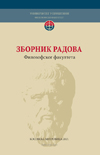Dreaming of Objectivity – the Myth of a Profession
Abstract
Reporting is usually seen as a process in which different facts get sense and specific meaning in a society. The complex nature of media discourse turns occurrences, conflicts, processes and individuals into news, reports, interviews an other genres. The whole process was for a long time followed by understanding objectivity as one of crucial postulates in journalism. During the centuries developed a specific myth of good journalism, that promote honesty, balancing, fair play, impartiality, in a word – objectivity. However, globalization and the digital revolution, supported by corporate capital point out the manipulative context and ideological construct of contemporary media practice, that structuring and distribution of information subordinate to the interests of the ruling elites. In new journalism, visible and invisible are blended in convincing narrative, reconstructed image persuade critical thinking, and ideological concepts are hidden by lexical meaning. Between archaic desire to transmit the truth, with full consideration of professional standards, and clientelistic journalism, which develops a close relationship with advertisers and media owners, expands unbridgeable gap, which significantly changes the character of journalism across the globe.
References
Бодријар, Ж. (1991). Симулакруми и симулација. Нови Сад: ИП Светови.
Bentele, G. (1988). Wie objektiv können Journalisten sein. U Erbring, Luty & et al. (Ur.), Meddien ohne Moral. Variationen über Journalismus und Ethik. Berlin: Argon Verlag.
Burns, I. (2009). Razumjeti novinarstvo. Zagreb: Naklada medijska istraživanja.
Doll, H. D., & Bradley, B. E. (1974). „A Study of the Objectivity of Television News Reporting of the 1972 Presidential Campaign”. Central States Speech Journal, New York, 25.
Dower, J. W. (2000). Embracing Defeat; Japan in the Wake of World War II. New York: Norton.
Јевтовић, З. (2008). „Политички спектакл и јавно мњење”. Ц М – часопис за управљање комуникацијама, 3 (7), 5–25.
Luhmann, N. (2000). The reality of the mass media. Cambridge: Polity Press.
Хабермас, Ј. (2007). „Политичка комуникација у медијском друштву”. Ц М – часопис за управљање комуникацијама.
Хајдегер, М. (1982). Мишљење и певање. Београд: Нолит.
Хакет, Р. и Џао Ј. (2010). Одрживост демократије – новинарство и објективност. Београд: Клио.
Hertsgaard, M. (1988). On Bended Knee: The Press and the Reagan Presidency. New York: Schocken Books.
Маклуан, М. (1971). Познавање општила човекових продужетака. Београд: Просвета.
Маловић, С. (2005). Основе новинарства. Загреб: Голден маркетинг и Техничка књига.
Марковић, М. (1959). Правилно мишљење и правила мишљења. Београд: „Рад”.
Macdougal, C. D. (1963). Interpretative reporting. New York: The Macmillan Company.
Милетић, М. (2007). „Митови о медијима и савремене политичке митологије”. Ц М – часопис за управљање комуникацијама, 5.
Мерло-Понти, М. (2012). Видљиво и невидљиво. Нови Сад: Академска књига.
Плутарх, (1990). Питијски дијалози. Нови Сад: Матица српска.
Прајс, С. (2011). Изучавање медија. Београд: Клио.
Рељић, С. (2012). Промена карактера медија у савременом капитализму, узроци, актери, последице. Београд: Филозофски факултет.
Reich, W. (1981). Masovna psihologija fašizma. Beograd: Mladost.
The details about the publication policy, including copyright and licensing, are available at:

